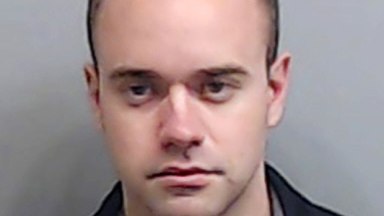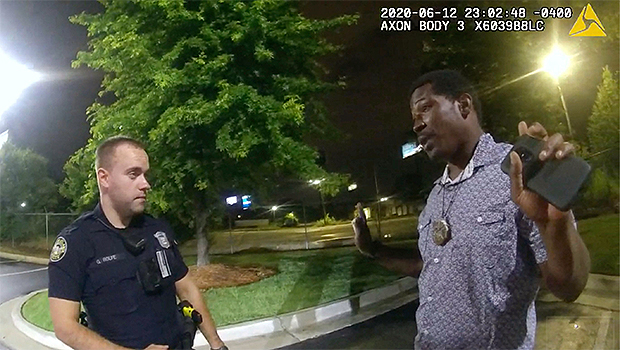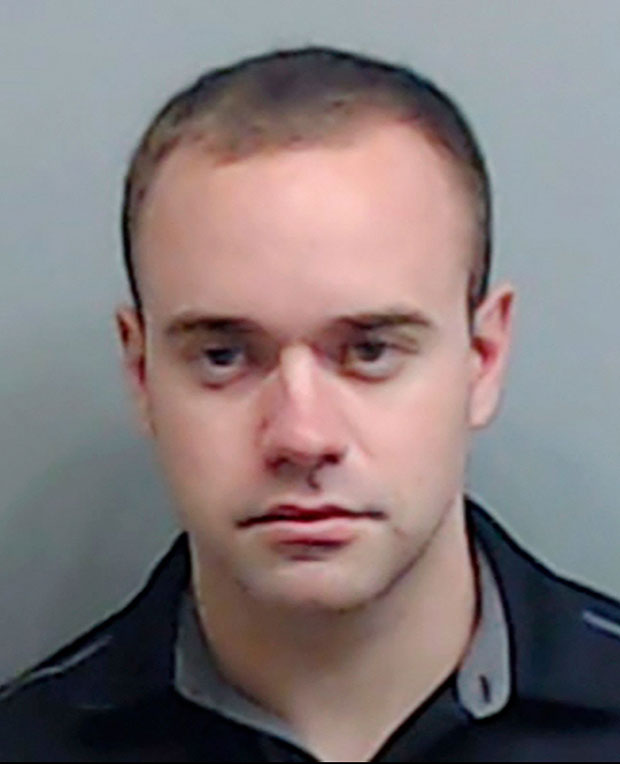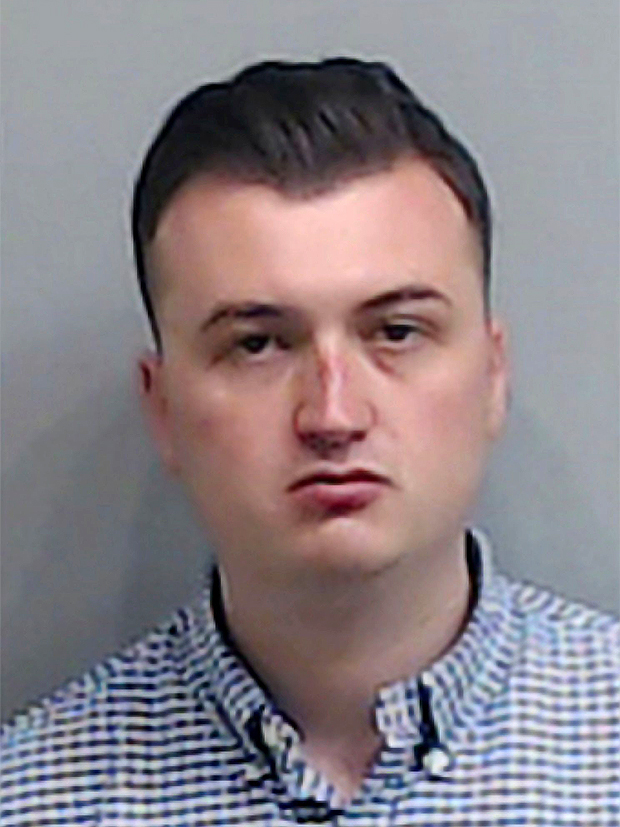
Garrett Rolfe – the former cop who was fired after he shot Rayshard Brooks in the back in an Atlanta Wendy’s parking lot on June 12 – is facing life in prison.
On June 18, Rolfe, 27, was hit with significant charges including felony murder and aggravated assault with a deadly weapon for killing the Black motorist.

If found guilty, he will spend the rest of his life behind bars, according to a top lawyer. “In Georgia, there are two types of murder: malice murder and felony murder,” B.J. Bernstein, an Atlanta lawyer tells HollywoodLife EXCLUSIVELY. “They both carry the same sentence, which is mandatory life in prison. Garrett was charged with felony murder, which is done in most murder cases.”
Even though the prosecution has to prove that Rolfe committed murder, they won’t have to prove that Rolfe deliberately tried to kill Brooks, the lawyer says. “The proof for the state is a death that occurs in the commission of a felony,” Bernstein says. “In this case, that felony is aggravated assault (the shooting of Mr. Brooks). This statute does not require malice on the part of the defendant. Garrett was not charged with malice murder at this point, but it might help to know the distinction.”
“Malice murder can be express malice (a deliberate intention to unlawfully take the life of another human being) or implied malice where all circumstances of the killing show an ‘abandoned and malignant heart,’” she adds.
The circumstances of this case have sparked protests in the community, because Brooks was shot in the back while running away from Rolfe and his fellow officer, Devin Brosnan, 26. Police were called because Brooks had fallen asleep behind the wheel of his car and was blocking a Wendy’s drive-thru lane.
After Brooks failed a field sobriety test, Rolfe attempted to arrest him. A fight ensued and, during the scuffle, the motorist grabbed the officer’s taser, according to ABC News. Brooks reportedly pointed the taser at the cops, and Rolfe is accused of grabbing his gun and shooting the young father in the back.

Whether or not Rolfe is found guilty, Bernstein says it’s unlikely that the former cop will get the death penalty. “I do not anticipate the state asking for the death penalty,” she says. “Plus it is too early to say if he will get convicted. Yes, it can be difficult to convict a police officer…but it can and has happened.”
“It also can go the other way as in recent police shooting cases,” Bernstein adds, referring to the 2019 case of Robert Olsen. The 57-year-old former Georgia cop was acquitted of murdering Anthony Hill, an unarmed Black man, in 2015. But he was found guilty of lesser counts, according to The New York Times.
“That resulted in a not guilty of murder, but guilty of aggravated assault and violation of oath of office and [he] received a 12-year sentence,” Bernstein says. “I will note that the lawyers in that case are now representing the other officer, Devin Brosnan, who was at the scene in this case.”
As for Brosnan, 26, he faces aggravated assault charges in Brooks’ shooting death, which also could lead to a hefty prison sentence. “For Devin, aggravated assault carries up to 20 to 30 years in prison. Brosnan is charged with aggravated assault and two counts of violation of oath of office, which carries a minimum of a one year sentence and up to a five-year sentence,” Bernstein says. “If convicted of all three charges he faces up to 30 years in prison. Note these offenses do not have mandatory jail time but instead, the time could be served on probation. With murder charges for other defendants that is a jail sentence and cannot be a probated sentence.”

This case could be a long way away from being tried in a court, thanks to the coronavirus pandemic, which has overcome the nation and Georgia especially. “Remember, they have been arrested but not yet indicted. Grand juries are not meeting in Georgia right now due to a judicial emergency due to COVID-19,” Bernstein says, noting that, because of the health crisis, courts and government agencies have been “closed and or running without full service.”
“No idea when grand juries will meet again. All of that is dependent on COVID and when jurors can be safely brought back to courts. The Supreme Court of Georgia keeps issuing extensions of the judicial emergency. The current order is in place until July 14. As there are reports still of new COVID cases in Georgia I do not anticipate grand juries meeting anytime soon,” she adds. “Even in a time without COVID the case could take over a year to go to trial.”


